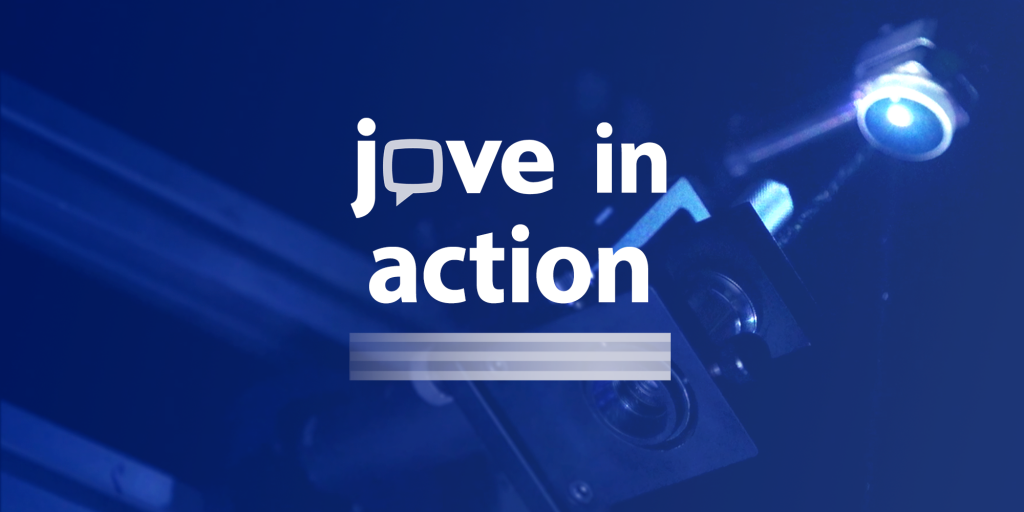Dr. Meghan Rae Porter is a Lecturer in the Department of Chemistry at Indiana University Bloomington. When her institution moved to remote instruction, she was teaching a chemistry course with over 120 students — this course included a lab component and covered material in General Chemistry II and inorganic chemistry. In addition, she was also teaching an upper-level inorganic chemistry lab course.

Dr. Meghan Rae Porter
When looking for resources for her online courses, Dr. Porter found that not many platforms offered inorganic chemistry content, especially for lab classes. The JoVE library, however, could support these needs. Dr. Porter had already been using JoVE videos in her courses as review material prior to remote instruction. She had liked that they were short, yet provided in-depth explanations of specific topics, and found them helpful for illustrating lab techniques. Moreover, unlike videos uploaded to video-sharing platforms like YouTube, she did not have to spend time reviewing every video on JoVE for quality — she could trust that they were all peer-reviewed and accurate.
To locate the JoVE videos that would best support her online courses, Dr. Porter used a service offered by JoVE to educators and scientists worldwide: she requested a syllabus map. The JoVE Customer Success team of on-staff Ph.D.’s then curated a list of JoVE videos mapped to the topics covered by her course syllabus. “It took me 10 minutes to browse the videos and make sure it worked for what I wanted,” said Dr. Porter.
Apart from the videos, which she integrated into her labs and lectures, Dr. Porter also found the JoVE testing feature to be useful for her introductory chemistry course. Each JoVE Science Education video is accompanied by a short quiz consisting of 5-10 questions about the concepts and methods presented in the video, and using these quizzes as a non-graded comprehension assessment helped Dr. Porter save time.
For her upper-level inorganic chemistry lab course, Dr. Porter used JoVE videos showing step-by-step demonstrations of experiments performed by scientists in research laboratories; she found them to comprehensively illustrate both the setup and the techniques used. With JoVE, she was able to find the highly specialized inorganic chemistry content that she needed to support her advanced course.
Speaking about the process of bringing lab courses online, Dr. Porter suggests that instructors should look for demonstrations of techniques, understand that videos are a great supplement, and see what JoVE has to offer. She notes that JoVE videos can help save time and are more professional than what instructors can create on their own. Ultimately, she notes, students do look for supplemental resources — providing these resources for them saves them the effort, and ensures that they are only using content that is accurate.
If you would like to learn how to effectively incorporate JoVE video resources into your hybrid, remote, or in-person science course, request a free consultation from our Customer Success team.

